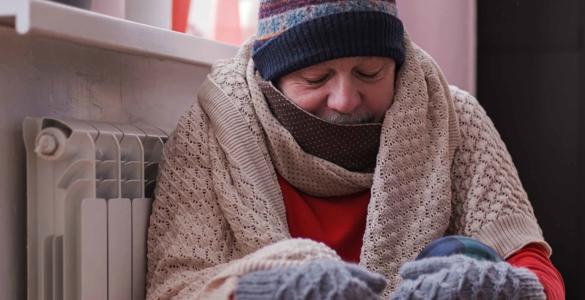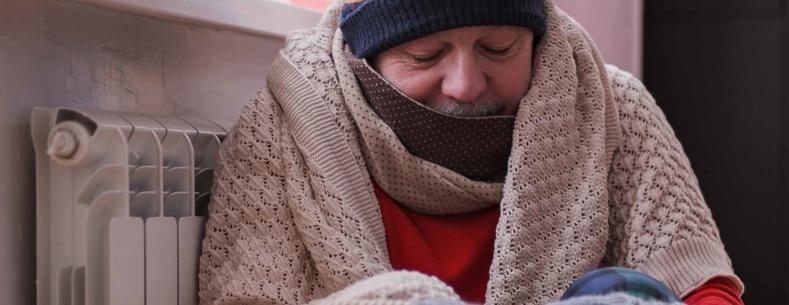The current cost of living is a public health emergency, potentially on the same scale as the Covid-19 pandemic, according to a report by Public Health Wales(PHW).
Increased living costs means many households are cutting back on essentials, with low income households most at risk. This leads to a fall in living standards that will affect people’s physical and mental health, and exacerbate existing conditions.
This article looks at the detrimental impact of increases in energy and food costs on people’s health and wellbeing, and what PHW and others say can be done to mitigate this.
What do people say about how the rising cost of living is affecting their health?
Research by the Royal College of Physicians found 60% of people in Wales feel their health has been negatively affected by cost of living. A ‘snap shot of poverty’ report by the Bevan Foundation in summer 2022 found many people are likely to experience negative impacts on their physical (30% of people) and mental health (43% of people). Some might find their finances starting to impede on their physical and mental health for the first time, others who may previously have been just about coping may now be pushed to the brink and could fall into crisis. The consequences for those already struggling with their finances are likely to be even more dire.
Cold houses can kill
Rising energy prices are pushing more people in Wales into fuel poverty (defined as spending more than 10% of household income to keep their house warm), and rural households are being hit particularly hard. Energy cost hikes are compounded by Welsh housing being some of the least energy efficient in Europe.
As Frank Atherton, Chief Medical Officer for Wales, said, “warm houses save lives”, and cold houses can kill. PHW found 30% of excess winter deaths in Wales are due to cold housing conditions, with 10% directly linked to fuel poverty. Excess winter deaths are likely to increase as fewer people are able to adequately heat their homes. According to Asthma + Lung UK:
Winter is the deadliest season for people with lung conditions. Cold homes are very dangerous for people with lung conditions because they provide the perfect environment for respiratory infections to thrive.
The latest evidence from Public Health Wales confirms that cold homes (18°C or below) are linked to worse health outcomes, including increased blood pressure (a risk factor for cardiovascular disease), respiratory effects, decreased physical performance (a risk factor for falls and fall-related injuries), and arthritic and rheumatic conditions. Older people, children and those with underlying conditions and disabilities are more vulnerable to the health impacts of cold homes, and also spend more time at home.
Some Health Boards warn they are seeing an increase in hypothermia in older people, reportedly due to freezing temperatures and people being afraid of the cost of putting their heating on.
Fuel poverty can lead to debt and is another factor which can have a negative impact on people’s wellbeing. In 19 of the 22 Welsh local authorities, energy debt was the most common debt people needed help with. Christians against Poverty (CAP) also reported that more people in Wales are in arrears for their energy bills than other parts of the UK. Worrying about debt is linked to anxiety, depression and suicidal thoughts. More than a third of people CAP spoke to had considered or attempted suicide as a way out of debt. People experiencing poor mental health are more likely to have reduced income as a result, leading to further financial strain and health issues.
The ‘double burden of malnutrition’
The cost of living means people are struggling to access sufficient and healthy food - known as food insecurity. There has been a 69% increase in people experiencing food insecurity in Wales over the past year. The World Health Organisation says food insecurity can result in the ‘double burden of malnutrition’, where hunger and obesity co-exist in communities, households and even individuals.
Not being able to buy or consume sufficient food can have impacts on physical health, including growth problems in children. Being hungry can lead to fatigue and poor concentration, which can affect people’s ability to engage with work and education and impact their mental health and wellbeing.
The Food Foundation found that healthier foods are three times more expensive per calorie than less healthy food. People with a reduced budget may be driven to eat cheaper but less nutritious and energy dense food, leading to obesity. Obesity is a risk factor for many health conditions, including Type 2 diabetes, cardiovascular diseases and some cancers.
Food insecurity can also make it difficult for people to manage their health conditions effectively. Kidney Care UK raised concerns that 44% of kidney patients reported missing meals, which could lead to deterioration in their condition. The Food Foundation found that people with disabilities are disproportionately affected by food insecurity.
Those most impacted by the cost of living
People living with chronic illnesses report ‘their health had worsened since the crisis began’. Half of people with lung conditions said the soaring cost of living had exacerbated their condition, with many needing emergency treatment. One in five people with asthma say they’ve had life-threatening asthma attacks as a result of the cut backs they’ve had to make. Eight out of ten kidney patients said risings costs were negatively impacting their physical health, with one in ten saying they were impacted every day.
Life is generally more expensive for people with disabilities and some chronic health conditions as they often have to spend more on essentials like heating and specialist lifesaving equipment, such as home dialysis machines. Our research article ‘Seismic’ impact of the cost of living crisis on disabled people’ explores this further.
What are some of the solutions?
Both the Welsh and UK Governments have introduced support schemes and one-off payments to alleviate cost of living pressures. Further information is available in our cost of living support guide.
Numerous charities have called on the UK government to bring forward the planned increase to benefit payments in line with inflation in order to protect vulnerable people’s health. They say targeted financial support is needed to help those with health conditions and disabilities with fuel and food costs, as well as better access to reimbursement for travel and equipment.
The Welsh NHS Confederation Health and Wellbeing Alliance and the Royal College of Physicians have called for the Welsh Government to produce a cross-government plan to reduce poverty and tackle inequalities.
Public Health Wales stresses that sectors, organisations and communities across Wales need to work together to prioritise the many ways their actions can support people’s health and well-being. It says “meaningful positive change can only be achieved by engaging and empowering communities in order to shift the power dynamic that drives inequalities”.
PHW sets out its view that the unique policy context of Wales provides an enabling environment for public bodies (and others) to act on the underlying causes of poor health and well-being in their immediate response to the cost of living crisis and when looking longer-term. Specifically, it advocates a ‘health in all policies’ approach to mainstream the consideration of health, well-being and equity into all policy development.
Article by Bonnie Evans, Senedd Research, Welsh Parliament
Senedd Research acknowledges the parliamentary fellowship provided to Bonnie Evans by the Medical Research Council which enabled this Research Article to be completed.






